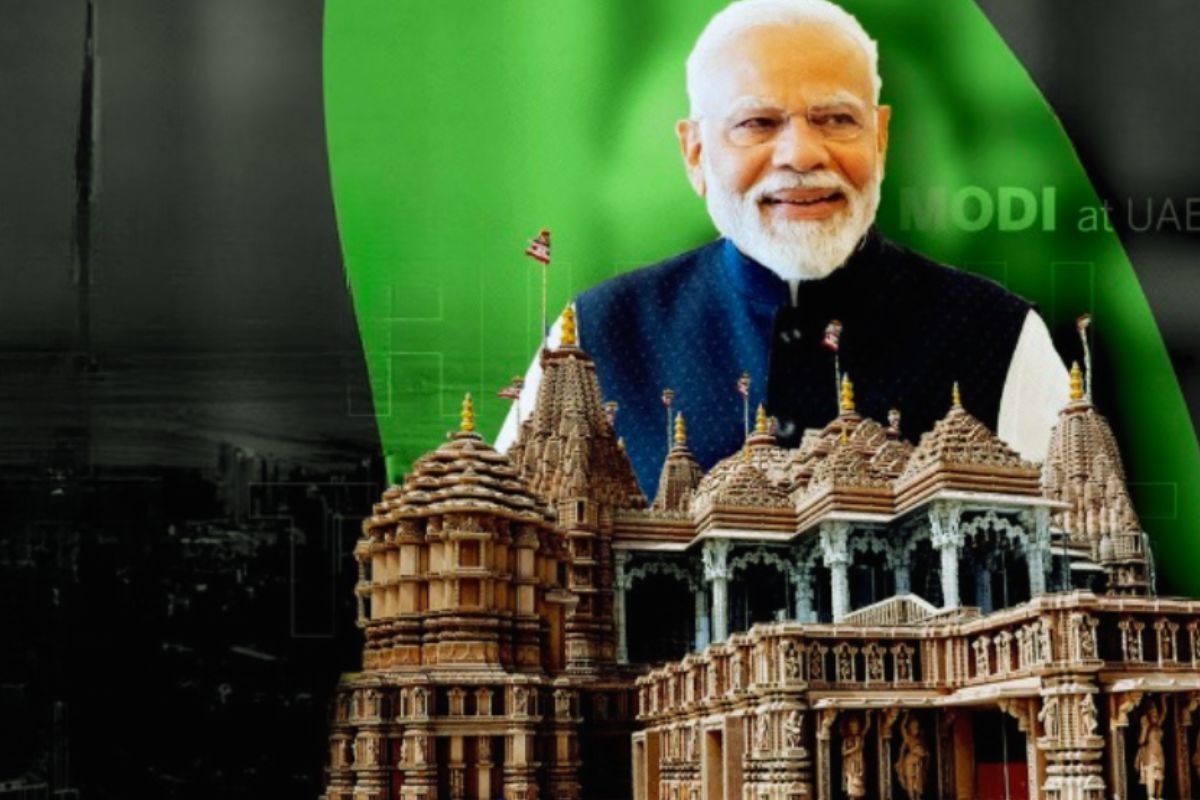NEW DELHI: Under the leadership of Prime Minister Narendra Modi, India’s temple diplomacy has emerged as a cornerstone of the nation’s soft power strategy, fostering cultural ties and diplomatic successes across the globe. The inauguration of the largest Hindu temple in Abu Dhabi stands as a testament to this diplomatic prowess and underscores the depth of India’s bilateral relationship with the United Arab Emirates (UAE).
Inaugurated on Basant Panchami, February 14, 2024, the BAPS Hindu temple in Abu Dhabi represents a monumental achievement in India’s cultural outreach efforts. Spanning 5.4 hectares, the temple complex embodies traditional Hindu architectural and sculptural traditions, meticulously crafted by Indian artisans who have painstakingly followed sacred methods and techniques.
Also Read: Democrats angered by special counsel report questioning Biden’s memory
However, the significance of this temple extends beyond its architectural grandeur; it serves as a symbol of the flourishing India-UAE partnership, characterised by robust trade relations and a thriving Indian diaspora in the UAE. With 3.5 million Indian expatriates, the UAE boasts one of the largest Indian communities globally, further solidifying the cultural and economic ties between the two nations.
The forthcoming inauguration of the temple, coupled with the enthusiastic reception of Prime Minister Modi by the Indian diaspora in Abu Dhabi, underscores the popularity and influence of India’s leader on the global stage. The “Ahlan Modi” event, scheduled a day prior to the temple inauguration, exemplifies the fervent support and admiration for Modi among the diasporic community, further enhancing bilateral relations.
Also Read: Who is Tucker Carlson and why did Putin talk to him?
Beyond symbolic gestures, the India-UAE partnership is yielding tangible results across various sectors, including healthcare, renewable energy, and technology. Recent agreements, such as the signing of Memorandums of Understanding (MoUs) in key areas of cooperation, highlight the commitment of both nations to deepen their economic engagement and foster mutual prosperity.
Furthermore, initiatives like the India-Middle East-Europe Economic Corridor (IMEC) demonstrate India’s ambition to play a pivotal role in shaping regional connectivity and trade dynamics. By leveraging its diplomatic depth and soft power assets, India is poised to emerge as a leading global player, fostering a transnational knowledge exchange while reinforcing cultural ties and mutual understanding.
Also Read: Pakistan polls 2024: A tragicomic spectacle
The BAPS Hindu temple in Abu Dhabi is not merely a religious institution; it symbolises the enduring bond between India and the UAE, transcending boundaries and fostering a shared vision of tolerance, acceptance, and cultural exchange. As UAE Ambassador to India Abdulnasser Alshaali aptly stated, its inauguration represents a monumental celebration of partnership and mutual respect.
The concept of “Two Nations, One Vision,” encapsulated in the UAE-India Business Summit and the Vibrant Gujarat Global Summit 2024, highlights the shared commitment of both nations to foster inclusive growth and collaboration. The formalisation of the Comprehensive Economic Partnership Agreement (CEPA) further cements this partnership, paving the way for enhanced economic cooperation and prosperity.
Also Read: Prince Lakshyaraj Singh Mewar on royal legacy, Udaipur affection & BJP’s resurrection











